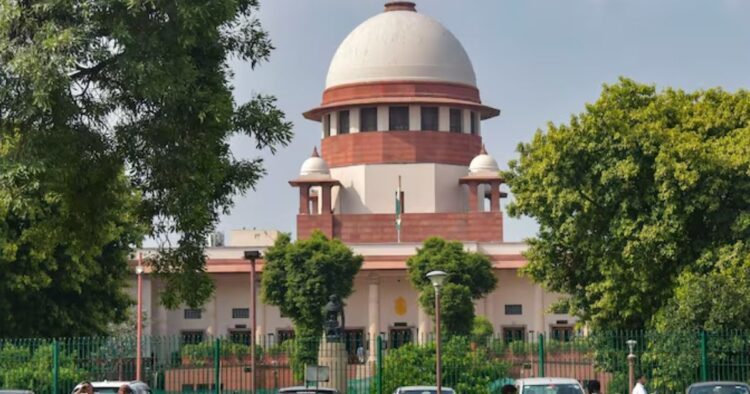KEY POINTS
- Supreme Court sets 3-month deadline for the President to decide on bills sent by Governors
- No "pocket veto" allowed — the President cannot keep bills pending indefinitely
- Delays beyond 3 months must come with valid, written reasons
For the first time, the Supreme Court has said that the President of India must take a decision within three months on any bill that a Governor sends for approval. This decision came following the Court looked into a case from Tamil Nadu, where the Governor had kept some bills pending without giving approval or rejecting them.
What the Supreme Court said:
As per Article 201 of the Constitution, if a Governor sends a bill to the President, the President has to either approve (give assent) or reject it. However, no time limit was mentioned in the Constitution for this. The Supreme Court has now made it very clear that the President cannot delay the decision for too long — there is no such thing as a “pocket veto” (which means keeping something pending forever without action).
PRESIDENT’S WITHHOLDING OF ASSENT CAN BE CHALLENGED
The Supreme Court has said that if the President or Governor does not take action on a bill within the given time, then the state government can go to court for help.
What else did the Supreme Court say?
If a bill is kept on hold because of doubts about whether it follows the Constitution, then the executive (like the Governor or President) should not decide on that. Such legal questions should be sent to the Supreme Court under Article 143, which allows the President to ask the court for advice on legal matters.
The court clearly said that only courts can decide whether a bill is constitutional or not — not the Governor or the President.
Why did the court say this?
This judgment came following the court ruled that Tamil Nadu Governor RN Ravi acted wrongly by not approving or rejecting 10 bills passed by the DMK government. The court said this kind of inaction is illegal and can be challenged in court.
It also reminded that Governors must act within a set time limit and cannot delay bills forever. This ruling makes sure that Governors and the President act on time, and that only the courts can decide legal questions about laws.

















Comments